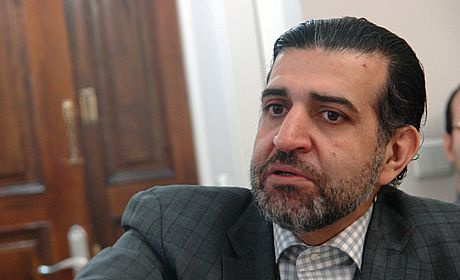Radicalism Contained through Spread of Democracy

A look at the scene in the region today, from Afghanistan and Pakistan to Iraq and Syria, we see that there is a religious and ethnic radicalism, which is not only the most important issue of the world of Islam, but also one of the Islamic Republic of Iran’s concerns today. It is true that great efforts should be made to prevent the spread of these issues, but we cannot deny today that these radical behaviors and ethnic and tribal abnormalities have turned into concerns and problems for the Islamic Republic of Iran.
From the beginning of its establishment, the Islamic Republic of Iran proposed a discourse in the world of Islam and the region which had three central axes: revolution, jihad, and freedom and democracy. All of these three approaches contradicted the interests of the foreigners in the region. If we look at the influence of the revolutionary discourse, we will find that all the awakening movements in the region have been impacted by the discourse of the Islamic Revolution of Iran. Or if we look at the discourse of Jihad, we will see that all the jihadist movements which have succeeded in the region were affected by the jihadist discourse of the Islamic Republic of Iran. An example of this is the Lebanese Hezbollah which was formed and grew with the impacts of the same jihadist discourse, and today has become a source of pride in the world of Islam and the symbol of resistance against the Zionist regime.
If we study the discourse of freedom and democracy, we will find out how effective we have been in the region. Many of the freedom-seeking movements of the region have considered this model. The existing political blockage in many of the Middle Eastern countries has fundamentalist and Salafi roots and if we had succeeded in advancing this discourse of democracy in the region, there would not have been this volume of regional radicalism. Fundamentalism is the offspring of backwardness and backwardness grows in the bed of political and ideological blockages. Thus, if the discourse of democracy had grown in the region and we could see its reflection in the political regimes of the region, radicalism would have left this region and migrated into other regions of the world. It is a correct statement to say that wherever the behavior of governments and regimes and movements has moved towards democracy, radicalism has left that area.
Therefore, the Islamic Revolution was able to open a space for itself in the region through these three axes. But some radical views and political developments led to growing disagreements. Throughout history, the Shiites and Sunnis have had a peaceful coexistence, but some incorrect policies have led to abnormal behavior during the last two decades.
When the late Seyyed Mohammad Hussein Fadlallah visited Imam Khomeini and submitted the proposal of the world conference on the Ahl al-Beit, Imam Khomeini asked him to propose a conference which would be the concern of the world of Islam, meaning that the Shiites and the Ahl al-Beit be placed in the process of the world of Islam. On the other hand, the behaviors or the views of some Shiite scholars have caused some to take advantage of these ideas and lead the Shiites and the Sunnis to confront each other. Thus, the imprudent actions of some in this process should not be ignored. Shiite geopolitics has been the element of power of the Islamic Republic of Iran. While during history in Iraq, the Shiites were always ignored, today power is in the hands of the Shiites. Or in Bahrain, the Shiites defend their identities against the al-Khalifa regime. These incidents have happened from the position of power and based on the geopolitics of the Shiites. But unfortunately we were not able to simultaneously pursue détente. This policy weakness has caused these phenomena to gather around each other and be transformed into an unreal message for the Sunni world and the world in general, to the extent that today there are talks of the threat of Shiism.
We should not forget that in the revolutionary, jihadist, and democratic discourse of the Islamic Republic, there is no division between Shiites and the Sunnis. Wherever there has been an Islamic movement, whether Shiite or Sunni, the Islamic Revolution has stood by it. The Islamic Republic of Iran has supported the Islamic movement in Afghanistan, Eritrea, the Philippines, Mali, central Asia and the Caucuses. The Islamic Republic of Iran has paid the highest price for the Islamic movements and benefited the least. This indicates that we must act more prudently and intelligently with regard to the conspiracies of the enemies. Part of what we see today in the regional scene is the result of the same carelessness and the conspiracy of those who are affiliated with the hegemonic system of the world.
Today, the people of Iran are paying the high cost of the Palestinian ideal and sanctions are imposed against them due to the same ideal. This is while the Sunni world has made the least effort in this regard, or whatever efforts they have made were made secretly to prevent sanctions. The Islamic Republic of Iran has tolerated the most difficulties because of these ideals of the world of Islam. Hence, a wise and prudent approach with regard to this problem is our most significant issue of the day, and if we do not pay attention to it, its impacts will not only involve us but also the region and the world of Islam.

